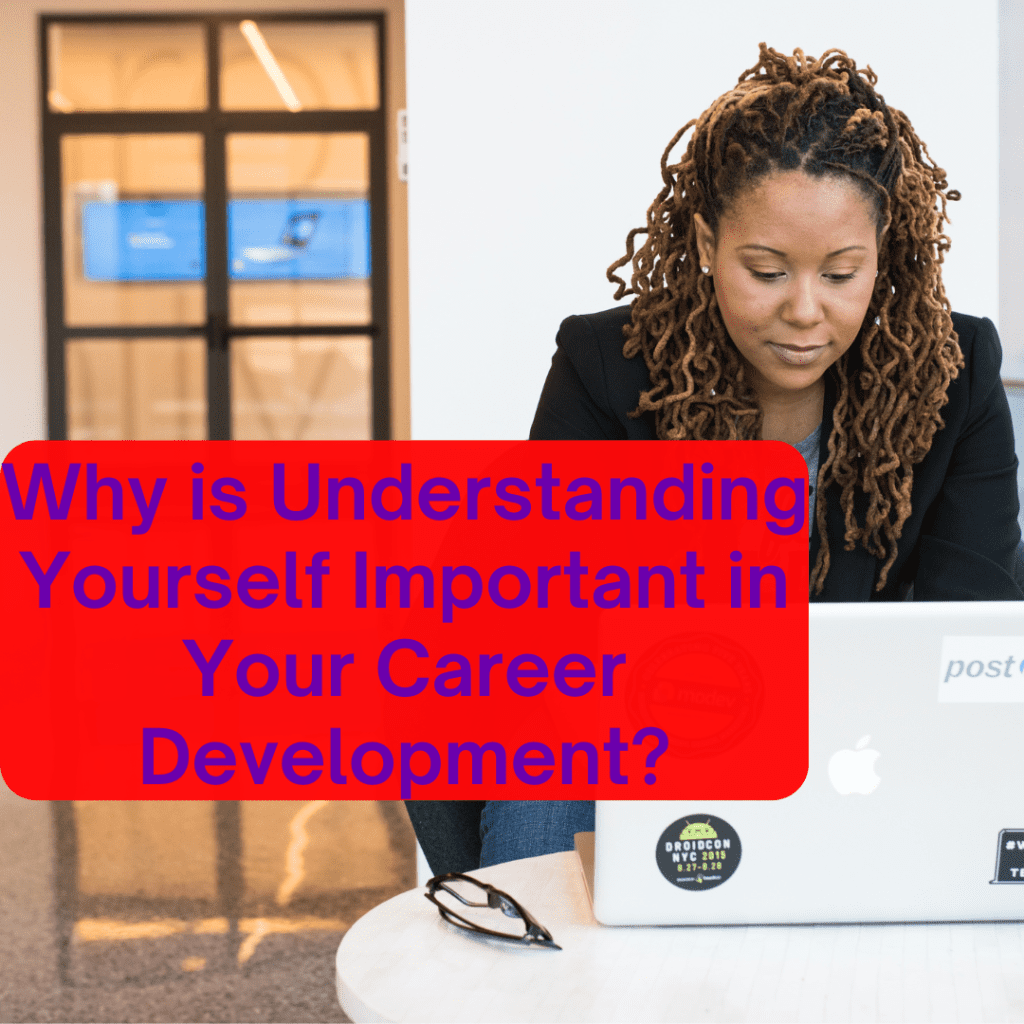The moment you understand yourself, then you are on the right track toward a fulfilling career path. Why is understanding yourself important in your career development? Mainly, career success begins with knowing yourself.
Being self-aware helps you identify your strengths, weaknesses, values, and interests.
But, what is a career development and what does it entail? Career development refers to the process of exploration that enables you to make decisions that shape your career path. The process is demanding and requires hard work, dedication, and self-awareness. Notably, without willpower, it isn’t easy to have a successful career or business.
In this article, we will explore why understanding yourself is essential in your career development. We will discuss how it can help you achieve your professional goals.
7 Reasons Why Understanding Yourself is Important in Your Career Development
There are many reasons being self-aware is paramount in your career development. For instance, self-awareness enables you to overcome many hurdles in your career development journey. Importantly, when you deeply understand yourself, you can make informed decisions about your career path. Also, you will be able to set realistic goals and develop the skills necessary to succeed in the most convenient way possible.
The following are the benefits of understanding yourself in your career development journey.
1. You Can Identify Your Strengths and Weaknesses
One of the most critical aspects of understanding yourself is identifying your strengths and weaknesses. Identifying both your strengths and weaknesses is essential. This knowledge helps you choose a career that aligns with your strengths. Also, it allows you to identify and work on your weaknesses to improve. By focusing on your strengths, you can excel in your chosen field. On the other hand, by addressing your weaknesses, you can develop the skills necessary to overcome any challenges you may face in your career.
2. Clarify Your Values
Your values play a crucial role in your career development. Knowing what you value can help you identify a safe work environment, culture, and company that aligns with your beliefs. For instance, if you like a work-life balance, you may prioritize job opportunities that allow flexible working hours or remote work options. On the other hand, if you value a fast-paced, high-pressure work environment, you may prefer a career in a dynamic and challenging industry.
3. Discover Your Interests
Understanding your interests is crucial in choosing a career you enjoy and are passionate about. When you are passionate about your work, you are more likely to always be motivated, engaged, and fulfilled. Therefore, you should take some time to explore your interests and hobbies and consider how to incorporate them into your career. For example, if you love marketing and strategic planning, you may consider exploring career paths in marketing or advertising.
4. Develop Self-awareness
Self-awareness is the ability to understand your thoughts, feelings, and behaviors. Developing self-awareness helps you know how you respond to different situations and people. Also, it enables you to know how you can improve your communication and interpersonal skills. This knowledge can help you build stronger relationships with colleagues, managers, and clients, ultimately enhancing your career or business success.
5. Set Goals
Understanding yourself helps you set realistic and achievable goals for your career. Setting goals can help you stay focused and motivated. Importantly, setting goals enables you to have a clear direction for your career.
6. Make Informed Career Decisions
Understanding yourself helps you make informed decisions about your career. You can make career choices that align with your personal and professional goals. For instance, when you are self-aware, you won’t choose a career path blindly. You will have to spend time understanding yourself so that you will choose a fulfilling career.
7. Manage Stress and Burnout
When you understand yourself, you can easily identify the factors contributing to stress and burnout in your work. You can proactively manage stress and maintain a healthy work-life balance. For instance, if you know you are prone to burnout, you may prioritize self-care activities, such as exercise, meditation, or spending time with loved ones. The self-care measures will help you maintain your mental and emotional well-being.
Strategies for Developing Self-Awareness
Since self-awareness is an essential skill for career development, you need to have basic tips on how to achieve it. Here are steps for developing self-awareness for successful career development:
- Reflect on your values. Reflect on what is important to you. Also, think of what motivates you and what you stand for. This will help you understand your core values and how they align with your career goals.
- Take personality assessments. Taking personality assessments such as the Myers-Briggs Type Indicator (MBTI) or the Big Five personality traits can help you understand your personality traits. Also, you will be able to know how they impact your career choices.
- Seek feedback. This step entails asking for feedback from people around you, including colleagues, mentors, and supervisors. This will help you understand how others perceive you and where you can improve.
- Journal. Write down your thoughts, feelings, and experiences. This will help you identify patterns in your behavior and gain insight into your strengths and weaknesses.
- Identify your skills and strengths. Identify the skills and strengths that you possess. Think about how you can apply them to your career goals.
- Set goals. Set clear and achievable goals for your career development. This will help you focus on your goals.
- Seek new experiences. Seeking new experiences challenge and expose you to new ideas and perspectives. The experiences help you develop new skills and broaden your understanding of yourself and the world.
Challenges of Developing Self-Awareness
Developing self-awareness can be challenging. It requires a lot of effort and self-reflection. Here are some of the challenges that you may face when trying to create self-awareness:
- Resistance to feedback. Receiving feedback, especially negative, can be difficult for some people. Humanly speaking, it is usually challenging to hear criticism about ourselves. We may be inclined to reject or ignore it. However, accepting feedback is essential to developing self-awareness.
- Biases. As human beings, we always have biases, whether conscious or unconscious. Our biases usually cloud our judgment and prevent us from seeing ourselves. Therefore, recognizing and overcoming our biases is an essential part of developing self-awareness.
- Fear of change. Sometimes, becoming more self-aware can lead to the realization that changes must be made. This can be intimidating, and we may hesitate to make these changes. But they are necessary.
- Lack of self-reflection. Developing self-awareness requires regular self-reflection. Some struggle to find the time or motivation to engage in this type of introspection.
- Cultural and social conditioning. Our upbringing, cultural background, and social activity impact how we perceive ourselves and the world around us. Recognizing and overcoming these influences is crucial to developing a more accurate and authentic sense of self.
- Limited perspective. We all have blind spots or areas we lack awareness or understanding. Developing self-awareness requires expanding our view and seeking out new experiences and knowledge.
Wrap it Up
Understanding yourself is critical for career development. By investing time and effort in understanding yourself, you can make informed decisions about your career or business and achieve your full potential.
Lastly, developing self-awareness is not a one-day event. It is a lifelong process, and individuals may encounter some or all of the above challenges. However, by recognizing these challenges and actively working to overcome them, you can develop a deeper understanding of yourself and achieve your career and business goals.





